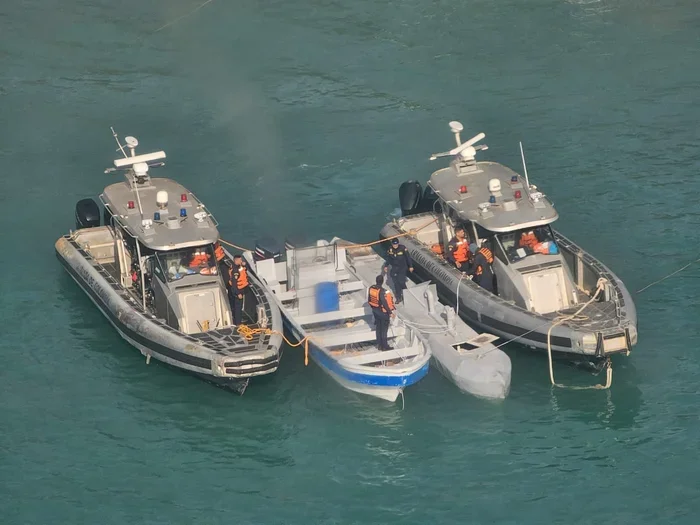On Monday, October 20, 2025, Ecuador released a man who survived a US military strike on a suspected drug-trafficking submarine. The decision, based on a lack of criminal evidence, highlights the challenges of international anti-drug efforts and differing legal standards across nations.
Submarine Strike Sparks Controversy
Last week, US forces targeted a semi-submersible vessel in the Caribbean, believed to be carrying narcotics to North America. President Donald Trump called it a “major drug submarine” loaded with fentanyl and other substances.
The attack killed two crew members, but two survivors an Ecuadorian and a Colombian were rescued and sent back to their countries. Ecuador’s attorney general found no charges against the unnamed survivor, leading to his release.
Meanwhile, Colombia detained its citizen, who sustained severe injuries and faces smuggling charges after medical treatment.
US Intensifies Caribbean Operations
Since August 2025, the US has increased its naval presence near Venezuela, deploying warships and thousands of troops to intercept suspected drug vessels. This operation, the seventh in recent months, has resulted in at least 32 deaths, prompting outrage from some Latin American leaders.
They criticize the US for escalating violence in civilian waters. The Trump administration defends these actions as vital to stopping drugs from reaching American communities, with Vice President JD Vance stating that the US prioritizes blocking narcotics over prosecuting foreign survivors.
Leaders React to Rising Tensions
Trump praised the strike on social media, labeling the crew “narco-terrorists” and highlighting the operation’s success. Ecuador’s President Daniel Noboa echoed support, emphasizing his country’s commitment to fighting drug trafficking and illegal mining.
Noboa, who has overseen economic growth and reduced poverty, called for global cooperation to address these issues. However, Colombia’s President Gustavo Petro condemned the US approach as an attempt to dominate the region and access Venezuelan resources.
This disagreement fueled a diplomatic rift, with the US decertifying Colombia as an anti-drug ally, prompting Colombia to halt US arms purchases.
Ecuador’s Struggle with Crime
Once a safe haven, Ecuador now faces rising violence as a key transit point for drugs from Colombia and Peru. Gang conflicts and sophisticated smuggling methods, like submersibles, have driven up crime rates.
Noboa’s government has implemented prison reforms and border security measures, but the submarine incident shows the persistent challenge of curbing global drug networks exploiting regional instability.
Balancing Security and Diplomacy
The incident reveals tensions between unilateral US actions and the need for cooperative anti-drug strategies. Critics argue that aggressive strikes risk pushing traffickers to new methods, like air routes, complicating enforcement.
Ecuador’s release of the survivor reflects its focus on legal due process, contrasting with the US’s hardline approach.
For the Caribbean, a major cocaine corridor, coordinated efforts are crucial. Addressing poverty and corruption alongside enforcement could offer a path to lasting stability, prioritizing lives over political wins.
READ ALSO: Madagascar Faces Leadership Shift After Military Coup




















